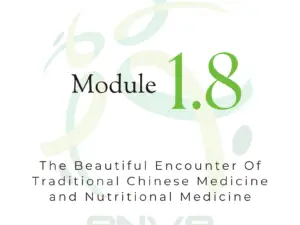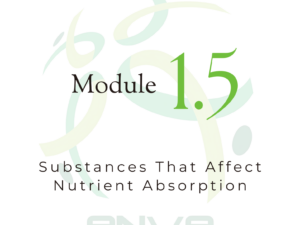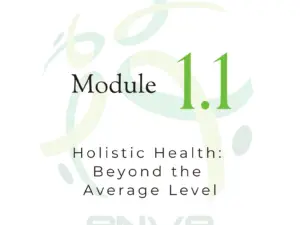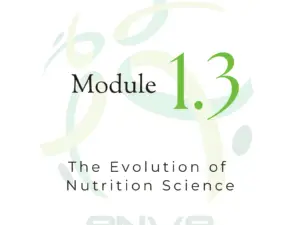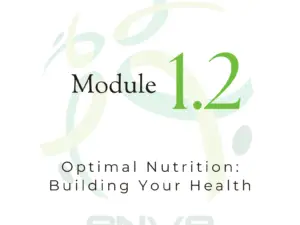1.6 Food Safety Risks: What Consumer Needs to Know
- Description
- Curriculum
- Reviews
- Grade
❓Is your food really safe—or just convenient?
What looks clean might not be harmless. In this chapter, we dive into the hidden dangers behind processed foods, explore the difference between “natural” and “organic,” and break down how poor food choices accelerate oxidative stress and disease.
You’ll learn how to spot risks, question trends, and make food choices that truly protect your health—not just follow the crowd.
🎯 Learning Outcomes
-
Understand the foundations of food safety and sources of food contamination.
-
Distinguish between natural, organic, and processed foods in practical terms.
-
Analyze how high-sugar and high-fat diets contribute to oxidative damage and chronic disease.
-
Evaluate how modern eating habits affect inflammation, metabolism, and long-term health.
-
Build critical thinking skills to make informed, responsible food choices beyond food trends.
🥣 Reflection|Every food choice is a vote for your future health
By now, you understand that “safe” and “convenient” are not always the same. You’ve uncovered the risks of over-processed foods, learned the truth about food labels, and begun to see how diet directly shapes cellular health.
From this point forward, treat every meal as an opportunity to nourish, not just to eat. Pause, question, and choose food that supports your body, not just your schedule.
In a noisy world of food marketing, your clarity will become your greatest protection.
-
1Introduction: Health Professional Speaker2 minutes
-
2Lesson 19 minutesSorry, this lesson is currently locked. You need to complete "Introduction: Health Professional Speaker" before accessing it.
-
3Lesson 2Video lessonSorry, this lesson is currently locked. You need to complete "Lesson 1" before accessing it.
-
4Lesson 36 minutesSorry, this lesson is currently locked. You need to complete "Lesson 2" before accessing it.
-
5Lesson 46 minutesSorry, this lesson is currently locked. You need to complete "Lesson 3" before accessing it.
-
6Food Safety Concerns Quiz10 questionsSorry, this lesson is currently locked. You need to complete "Lesson 4" before accessing it.
Video source is missing or invalid.
Module 1 - Basic of Holistic Nutrition
Foundations of Nutrition module provides a comprehensive overview of essential nutrition principles for optimal health. It covers the importance of holistic wellness, nutrient synergy, factors influencing absorption, food safety, and label reading. The module also explores the evolution of nutritional science, the integration of traditional Chinese medicine, and the interactions between medications and nutrients. This foundational course equips participants with the knowledge to make informed, health-enhancing nutritional choices.
The Basic Requirements for Nutrition Course - Students:
- Scientific Foundation: Knowledge of biology, chemistry, basic mathematics, and statistics, especially in areas such as human anatomy and biochemistry.
- Learning Ability: Strong self-learning and logical thinking skills, with the capacity to integrate knowledge from multiple disciplines.
- Communication Skills: Ability to clearly express nutritional concepts, adapt to diverse audiences, and work effectively in teams.
- Professionalism: Passion for health and nutrition, with a commitment to scientific rigor and objectivity.
- Time Management: Efficiently plan study tasks, adhere to academic standards, and maintain honesty and self-discipline.
- Health Awareness: Basic knowledge of health and diet, with an understanding of the practical value of nutrition science.
These requirements provide a solid foundation for effective learning and development in the field of nutrition.
This course is suitable for anyone aiming to enhance their nutrition knowledge and practical skills through a scientific approach.
- Nutrition Beginners: Individuals interested in nutrition science and seeking to systematically learn the basics.
- Health and Medical Students: Students in fields such as medicine, nursing, and public health who need a foundational understanding of nutrition.
- Health Industry Professionals: Fitness trainers, health consultants, diet planners, and others looking to enhance their professional expertise.
- General Health Enthusiasts: People focused on improving their own or their family’s health and eager to learn about scientific nutrition and healthy eating.
- Policy Makers and Educators: Professionals involved in public health policy development or health education promotion.
Popular Courses
Archive
Working hours
| Monday | 9:30 am - 6.00 pm |
| Tuesday | 9:30 am - 6.00 pm |
| Wednesday | 9:30 am - 6.00 pm |
| Thursday | 9:30 am - 6.00 pm |
| Friday | 9:30 am - 5.00 pm |
| Saturday | Closed |
| Sunday | Closed |

